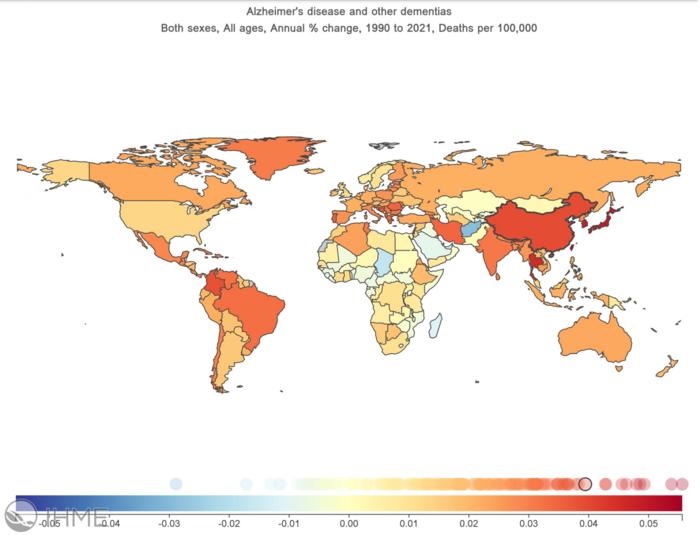ARTICLE AD BOX
Scientists have warned of a disproportionate burden of Alzheimer’s disease and other dementias in China, with case rates increasing at a faster rate than the global average.
The new research, published on Wednesday in the journal PLOS One, calls for implementing immediate and effective interventions to prevent dementia in the country as early as possible.
Alzheimer’s and other dementias (ADD) are an increasingly serious neurological health issue with rates rising worldwide.
However, there is a lack of understanding of the true disease burden and risk factors of dementias specifically in China, scientists say.

In the current study, researchers analysed over three decades of global health data from the Global Burden of Disease (GBD) – a public database initiated by institutions including the World Bank and the World Health Organization.
The database contains data on over 370 diseases and injuries, and about 88 of their corresponding risk factors across 204 countries and regions.
Based on the latest analysis for the years between 1990 and 2021, scientists found that dementia cases tripled in China, while global cases doubled.
“ADD is one of the diseases with the heaviest global disease burden. The disease burden of ADD in China and globally has increased year by year from 1990 to 2021,” they wrote.
“By 2021, China’s disease burden has increased by three times, while the global disease burden has doubled,” the study noted.

Women were found to bear a higher overall burden from dementia, partly due to longer lifespans, compared to men.
But men have slightly higher death rates from the condition, researchers say.
Projecting trends for the next 15 years, scientists warn that dementia rates will continue to rise, especially in China, unless more effective interventions are put in place.
High blood sugar from conditions like diabetes is now the leading risk factor for dementia worldwide, including in China, followed by smoking and high body weight, researchers say.
“Smoking, high fasting plasma glucose, and high body-mass index are the three major risk factors, among which high fasting plasma glucose occupies a dominant position,” they wrote.
Scientists suspect the increase in dementia cases in China could be mostly tied to population growth and shifting age demographics.
“As a developing country, China has experienced a significant increase in the number of diabetes patients because of economic transformation and major changes in lifestyle,” they wrote.
Researchers call for efforts to reduce high blood sugar and smoking, especially among older adults, to slow the increase in dementia cases.
Interventions targeting gender-specific risk factors would be needed to achieve the clinical goals of early intervention, they say.









 English (US) ·
English (US) ·